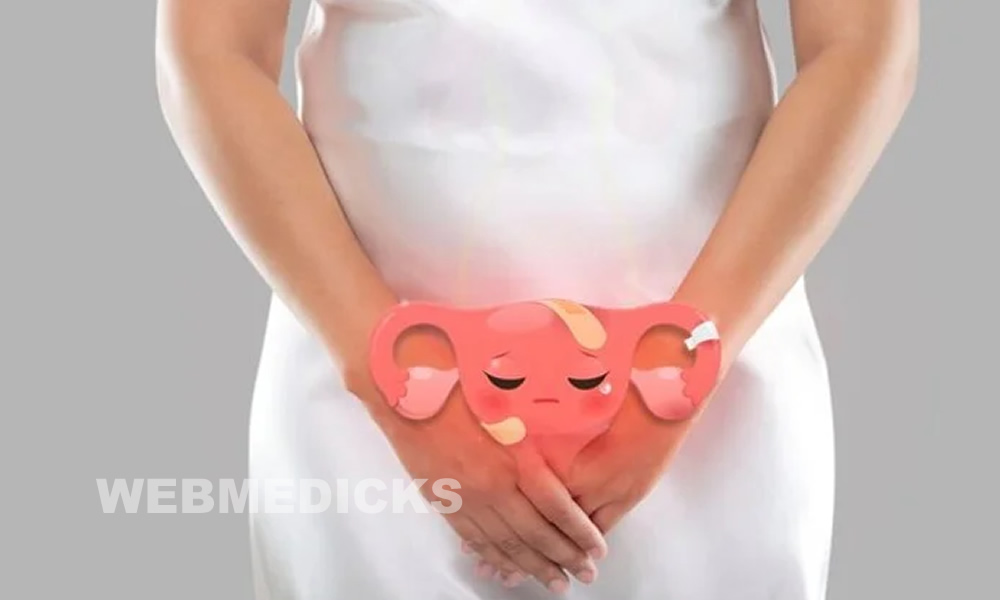Vaginal dryness- Causes, Treatment and Prevention

Definition
Vaginal dryness is a common problem experienced by up to one in three women, particularly those who are going through menopause or those who experience early menopause symptoms. The female sex hormone estrogen is responsible for maintaining your natural lubricant. When your estrogen levels decrease you are more likely to experience vaginal dryness.
Normally, glands in your cervix produce a natural lubricant that keeps your vagina moist. This natural lubricant travels down your vagina, which helps to maintain a clean and healthy environment. A small amount of white discharge is a healthy sign of your vagina that is naturally well lubricated and keeping itself clean.
Epidemiology
Vaginal dryness can occur at any age, with prevalence ranging from 13% to 31%, although rates are significantly higher for postmenopausal women (50%) and women treated for breast cancer (63%).
Risk factors of Vaginal dryness
Besides low estrogen, other unconventional risk factors include:
- Use of specific soaps, perfumes, lotions, and douches (that alters the chemical balance in the genital tract may also cause dryness
- Certain drugs such as antihistamines and anti-depressants can also present with vaginal dryness as an adverse effect. Antihistamines are a class of drugs that are used for the management of asthma, allergies, and cold. These drugs can lead to vaginal dryness, as most of these drugs exert their action by drying the secretions of the body.
- Moreover, a rare autoimmune disease – Sjogren’s syndrome can also present with dryness of vagina along with dryness of eyes and mouth.
- Anxiety and depression are unhealthy mental states that not only influence psychological health but may also affect sexual health. When a person is stressed or depressed, sexual desires or libido also decrease which may lead to vaginal dryness.
Low libido or other sexual problems can lead to vaginal dryness. Similarly, this disease can worsen a low sexual drive.
Vaginal dryness causes
In many cases, women have vaginal dryness when estrogen hormone levels decrease. Treatments for other conditions can also cause this symptom. Vaginal dryness can result from:
- Breastfeeding and childbirth
- Cancer treatments including chemotherapy and hormonal therapy
- Diabetes
- Medications including allergy and cold drugs
- Menopause
- Removal of the ovaries
- Sjogren’s syndrome (an autoimmune disorder that can cause dryness throughout the body)
Douching and other irritants: Certain soaps, lotions, perfume, and douches can disrupt the natural balance of chemicals in your vagina, leading to dryness.
Other medicines: Allergy, cold, and asthma medicines that contain antihistamines can have a drying effect on the body and contribute to reduced vaginal lubrication.
Certain antidepressants may also lead to a reduction in vaginal secretions.
Anxiety: Stress and anxiety can affect sexual desire and may lead to vaginal dryness.
Sjogren’s syndrome: This rare autoimmune disease can cause dryness in the eyes, mouth, and vagina.
Low sexual desire: A low libido or other sexual problems may give way to dryness, and conversely, the dryness may worsen libido.
Symptoms of Vaginal dryness
The changes described above can occur without causing any symptoms or discomfort. However, some of the following symptoms may develop in some women. Vaginal dryness is a common (and usually treatable) cause of the following problems. However, these problems can also be caused by other medical conditions.
Pain when you have sex: This may occur because your vagina is smaller, drier and less likely to become lubricated during sex compared with how it was before the menopause. Also, the skin around your vagina is more fragile and this can make the problem worse.
Discomfort: If your vulva or vagina is sore and red.
Vaginal discharge: There may be a white or yellow discharge. Sometimes this is due to an infection. Infection is more likely if the discharge is smelly and unpleasant.
Itch: The skin around your vagina is more sensitive and more likely to itch. This can make you prone to scratching, which then makes your skin more likely to itch, and so on. This is called an itch/scratch cycle which can become difficult to break and can be distressing.
Urinary problems: Vaginal dryness may contribute to various urinary problems. This is because of thinning and weakening of the tissues around the neck of your bladder, or around the opening for urine to pass (the urethra). For example, urinary symptoms that may occur include an urgency to get to the toilet and recurring urinary tract infections.
Complications of Vaginal dryness
Vaginal dryness can:
- Make you more likely to get yeast or bacterial infections of the vagina.
- Cause sores or cracks in the walls of the vagina.
- Cause pain with sexual intercourse, which may affect your relationship with your partner or spouse. (Talking openly with your partner may help.)
Diagnosis and test
- If you have vaginal dryness, your doctor can perform a pelvic exam to determine whether the walls of your vagina are thin, pale, or red.
- You may also undergo testing of your hormone levels to see if you’re going through menopause.
- Your doctor may also test your vaginal discharge to check for other causes of dryness.
- Visit your doctor if you have symptoms of vaginal dryness that are severe or don’t go away.
Vaginal dryness treatment
There are two main ways to help with or treat vaginal dryness: lubricants and estrogen therapy.
Topical, short-term solutions
Using vaginal moisturizers and lubricants can help relieve vaginal dryness and painful sexual intercourse. You can buy moisturizers and lubricants over the counter. Check with your provider to find which one may be the right choice for you as there are many options.
Estrogen therapy
Estrogen therapy is a long-term solution to vaginal dryness. There are a few therapy options for women, including:
Local estrogen therapy: Low-dose vaginal estrogen therapy (such as vaginal creams, vaginal rings, and vaginal tablets), release a small dose of estrogen directly into the vaginal tissue. The estrogen helps restore the natural thickness and elasticity to the vaginal lining and also relieves dryness and irritation.
Systemic estrogen therapy: With this type of estrogen therapy (pills, skin patches, or gels or sprays applied to the skin), estrogen is released into the bloodstream and travels to the organs and tissues where it is needed.
Laser estrogen therapy: It’s a fast, simple, and safe laser treatment that takes less than 5 minutes called MonaLisa Touch. This laser treatment can help restore your gynecologic health especially when estrogen levels decline after menopause. The machine delivers gentle laser energy to the vaginal wall tissue that stimulates a healing response in the vaginal canal. A typical course of treatment is three procedures over 18 weeks.
Non-Hormonal Remedies
The following non-hormonal remedies may provide relief for vaginal dryness and discomfort:
Vaginal lubricants: Reduce discomfort with sexual activity when the vagina is dry by decreasing friction during intercourse. Water-soluble products are effective, as well as olive and coconut oils.
Vaginal moisturizers: Line the wall of the vagina and maintain vaginal moisture. Like your face or hands, your vagina should be moisturized on a regular basis- several times weekly, at bedtime.
Regular sexual stimulation: Promotes blood flow and secretions to the vagina. Sexual stimulation can improve vaginal health.
Pelvic floor exercises: Can both strengthen weak vaginal muscles and relax tight ones.
Expanding your views of sexual pleasure: Options such as extended caressing, mutual masturbation, and massage. Trying different options can help make painful intercourse more comfortable or allow you to remain sexually intimate without intercourse.
Prevention of Vaginal dryness
A water-soluble vaginal lubricant can be used to moisten the tissues and prevent painful sexual intercourse. Regular sexual activity also can help to prevent symptoms. This is because sexual intercourse improves blood circulation to the vagina, which helps to maintain vaginal tissue.
03 Comments

You don’t start out writing good stuff. You start out writing crap and thinking it’s good stuff, and then gradually you get better at it. That’s why I say one of the most valuable traits is persistence.
O.Henry
December 4, 2020 at 3:12 pm

So read on to find some apt quotes for all writing occasions from considering to be a writer to experiencing a writers block to have already created that masterpiece yet contemplating if it’s good enough.
Lima Azumi
December 4, 2020 at 3:12 pm






























Every secret of a writer’s soul, every experience of his life, every quality of his mind, is written large in his works. Start writing, no matter what. The water does not flow until the faucet is turned on.
Alice Rose
December 4, 2020 at 3:12 pm